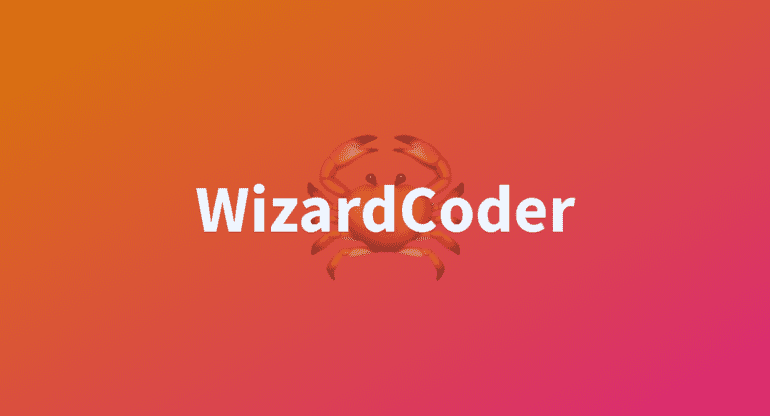TL;DR:
- Large Language Models (LLMs), exemplified by ChatGPT, are garnering attention for their remarkable achievements through pre-training and fine-tuning.
- Code LLMs, a subset of LLMs, excel in coding tasks after pre-training on extensive code data.
- Evol-Instruct methodology refines instruction data for LLMs, driving tailored outputs.
- Microsoft and Hong Kong Baptist University enhance StarCoder using code-specific Evol-Instruct, birthing WizardCoder.
- WizardCoder surpasses open-source Code LLMs, achieving state-of-the-art performance across code-generating benchmarks.
- Notable rise observed in pass@1 scores in HumanEval and MBPP benchmarks.
- WizardCoder outperforms competitors like Claude and Bard, exhibiting prowess in compact architecture.
Main AI News:
In recent times, the spotlight within the tech sphere has been commandeered by Large Language Models (LLMs), sparking fervent interest and garnering remarkable accolades. One standout example is OpenAI’s ChatGPT, a paragon of such models. By harnessing extensive pre-training on vast troves of internet data, coupled with meticulous fine-tuning guided by precise instructions, these models have astounded the community with their zero-shot prowess across diverse tasks. This phenomenon is also conspicuous in the realm of code comprehension and generation. The landscape has witnessed the advent of various Code LLMs tailored to surmount the intricacies intrinsic to coding endeavors. These Code LLMs undergo rigorous pre-training on copious volumes of code-centric data, endowing them with exceptional competence in manifold code-related undertakings.
However, a new vista beckons — a realm of nuanced instruction customization specific to the domain of code, in stark contrast to the predominant trajectory of most antecedent Code LLMs fixating on the pre-training phase. A clarion call resounds for heightened exploration into this arena to enhance the prowess of Language Models across an array of tasks. Enter the epoch-making concept of instruction refinement. Notably, OpenAI’s InstructGPT enlisted human annotators to furnish meticulous directives, aligning outputs with users’ objectives. A parallel endeavor, akin to Alpaca, harnessed ChatGPT for generating instructional data via a self-instructive approach. Vicuna capitalized on user conversations from ShareGPT.com. The magnum opus, however, surfaces in the form of the Evol-Instruct paradigm, birthed by the visionary minds at WizardLM. This methodology entails a sophisticated metamorphosis of extant instructional data, yielding datasets replete with intricate diversity.
Yet, a crucial caveat materializes – the need for these methodologies to be meticulously attuned to the exigencies of the code domain during conception, as opposed to a generic orientation. Infused with inspiration from the Evol-Instruct paradigm, luminary researchers from Microsoft and Hong Kong Baptist University embark on an audacious venture. Their objective: to elevate the capabilities of the open-source Code LLM, StarCoder, by fashioning granular code instruction data via the specialized prism of code-centric Evol-Instruct. The evolutionary prompt architecture undergoes a tailored evolution, finely calibrated to the cadence of coding pursuits. Streamlined prompts, refined instructions, and judicious integration of code debugging and time-space complexity considerations hallmark this approach. A pivotal milestone arrives with the crafting of the foundational Code Alpaca instruction dataset, emblematic of their pioneering efforts.
In the ensuing chapter of this odyssey, the nascent code instruction dataset assumes center stage, orchestrating the finetuning of StarCoder, thus giving birth to the prodigious WizardCoder. This majestic creation eclipses its contemporaries within the realm of open-source Code LLMs, standing tall with an unprecedented crest of state-of-the-art achievements. Experimental revelations from a quartet of code-generation benchmarks – HumanEval, HumanEval+, MBPP, and DS-100 – resoundingly attest to WizardCoder’s supremacy. Eclipsing its predecessors, WizardCoder boasts a conspicuous upswing in pass@1 scores. HumanEval witnesses a staggering uptick of +22.3 (57.3 vs. 35.0), paralleled by MBPP’s impressive +8.2 surge (51.8 vs. 43.6). Astonishingly, WizardCoder reigns supreme even against the likes of Anthropic’s Claude and Google’s Bard, in terms of pass rates on both HumanEval and HumanEval+, a testament to its mettle despite its relatively compact architecture.
Conclusion:
The introduction of WizardCoder marks a significant leap in the evolution of Code LLMs. Its performance benchmarks, surpassing industry giants, signifies a new era of code comprehension and generation, holding the potential to reshape coding practices and accelerate software development processes. The market can anticipate heightened interest in refining LLMs for domain-specific tasks, with implications spanning industries reliant on efficient and advanced coding methodologies.

